Chinchilla personalities are very unique and each one is different just like people. They can be very shy at first, so don’t try to rush the bonding process. Chinchillas are very loving when they do bond with someone. They have so much energy and love to play and chew on their toys or even nibble on fingers.

Owning a pet Chinchilla | Care guide
Chinchilla For Sale
What it’s like living with a pet chinchilla
The care of pet hedgehogs is basic and mainly involves feeding and watering each night, changing the bedding, and handling a few nights a week. Considerations for temperature and proper food are important. They each have their own personality but in general, hedgehogs are introverts who prefer to sleep or cuddle during the sunlight hours and will be active and more interactive at night. Hedgehogs are great and fun small pets. JEAR recommends hedgehogs as pets for kids, teachers, families, and as ambassador animals for programs.
How long do chinchillas live
Pet chinchilla Lifespan
How big are chinchillas?
Pet chinchilla Size Healthy chinchillas are normally 2-4 pounds.
Chinchilla Diet: Chinchillas have simple diets and are usually happiest being fed in the evening. Feed your chinchilla about 2 tablespoons of a plain timothy-based chinchilla pellet diet per day. Avoid alfalfa-based diets and diets that include dried fruits/treats. Many chinchillas will eat only the treats mixed in and not the pellets and will become unhealthy. They should also be given free access to timothy hay, usually a handful every day or two is enough. Nuts and seeds, fresh fruits, and fresh vegetables should be fed very sparingly. Dairy and animal products should be avoided.
What supplies do you need for a chinchilla?
Chinchilla Supplies: Wire cage – Ideally 2 stories with ramps and shelves, no plastic
Tip: As chinchillas poop a lot, you may want to look for a cage with side guards or a pull-out bottom. You’ll need to remove waste and uneaten food from your pets’ cage daily.
-
Cage cleaner – Dish soap, vinegar
-
Food bowl – not plastic
-
Chinchilla food
-
Water bottle
-
Hay
-
Hay holder
-
Solid large wheel
-
Bedding – Pine shavings, newspaper, liners, no cedar
-
Dust bath powder
-
Dust bathhouse
-
Hiding place – Wild chinchillas are very active in the evening. However, pet chinchillas adapt readily to humans’ schedules. Pets should be provided with some quiet time during daylight hours and a hideaway to sleep if they choose.
-
Toys and accessories
Bonding with your pet chinchilla
Chinchilla Bonding Tips
-
Allowing them to eat treats from your hand
-
Give them something that smells like you to sleep with
-
Let them come to you, don’t chase them
-
Give them lots of love and attention!
Chinchillas are capable of making a wide range of sounds. Depending on their personality they can be very vocal barking and gruffing while some make no noise at all. The bark is the most common of their noises and it can mean many different things whether is it happy, annoyed, or scared.
Do chinchillas bite?
My answer to this question is simple, anything with teeth can bite. Biting can occur in extreme stress or fear situations, they have very long front teeth and they are of course very sharp so a bite can be very painful. Some chinchillas will always be aggressive if they were raised improperly but this is rare. At first, they may not even realize that a bite is painful to you when this happens just gently put him down and do not display any anger, pain, or fear.
Chinchilla Dust bath
Do not ever bathe your chinchilla with water. Chinchillas keep themselves very clean and should not ever need a water bath. They bathe themselves by rolling and flipping around in volcanic dust that is similar to their natural environment. This powder soaks up the oils from their fur and leaves them sparkly clean and dry. You should provide an enclosed bathhouse (or a bowl if you don’t mind a powdery mess), with about 1/4 inch of dust in the bottom, two or three times per week for about 15 minutes. Chinchilla dust baths can be purchased at almost any pet store or online. Your chinchilla may also enjoy being brushed with a very soft brush. No need to clip their nails, as they are human-like and won’t scratch you.
Chinchilla exercise
Chinchillas are high-energy animals and CAN NOT be left in a small cage all day and night without any interaction. Give them things to do, toys to play with and even plenty of time to just spend with you and bond by playing games like running around in a ball or a safe game of hide and seek.
Chinchilla Habitat
A cooler and quiet area of your home is the best place for the enclosure. Chinchillas are covered in thick fur for a reason to protect them from elements such as harsh winters. This makes them susceptible to overheating so be careful when considering where to locate your enclosure in the house.

Chinchillas cages ideally are a good size and have multiple levels to the home like platforms and ramps. Some say the larger the cage the better but this is at your discretion on what’s ideal for your home. Plastic cages are NOT ideal because the chinchillas can easily chew through plastic and get out of the enclosure. The tray at the bottom should be lined with pine shavings, newspaper, or liners. Some people get wire bottom cages because it is easier to clean but this is hard on chinchilla’s feet so I recommend against those.
Ideal Temperature for chinchillas
Chinchillas must be kept cool at all times. They have thick, warm fur and can overheat easily. Keep your chinchilla in a room that is around 75 degrees or cooler, ideally 60- 70 degrees. Never let your chinchilla be in temperatures of 80 degrees or more for a prolonged period of time. They are naturally found in very cold regions.
If you live in an area that gets warm, I highly recommend putting some small slabs of granite on the bottom of their cage. When your chinchillas get too warm, they love to curl up on these slabs to cool down.
Toys and enrichment for pet chinchillas
Because they are rodents chinchillas’ teeth grow continuously so they must wear them down by chewing. Chinchillas really like to chew on things and run and jump and play, this means they need a very good variety of toys. This will keep them active and busy. You will also want to get chew toys that are good for keeping their incisor teeth filed and in good condition. Blocks of wood and tree branches that are free from pesticides make good chew toys. Wheels can provide really good exercise, You would want one with a solid running surface and at least 15 inches. Wire wheels are NOT recommended because they can damage their feet and tails.


Neutering and spaying Chinchillas
Neutering and spaying is the best way to prevent any unwanted babies from being made. It also makes the males less aggressive and calmer in some cases.
Chinchilla For Sale
Handling Chinchillas
Chinchillas are not nippy by nature so do not be afraid to pick up your baby! Use two hands to pick up your chinchilla and try to keep his feet supported with your hands or chest while you are holding them. They can have lots of energy and may not sit still for very long at first, but with regular handling, they will look forward to your company. However, they do prefer to climb on you as opposed to being held. Handle your baby gently and discourage any bad behavior with a little blow of air on their face.
Chinchilla Health
As chinchillas are prey animals, they are likely to hide any signs they are feeling unwell. You know your chinchillas best. If you have any concerns about your chinchillas’ behavior or their health, get advice from a vet with experience in chinchillas.
There may be times when your chinchilla has a minor injury or the power goes out. Having a small emergency kit with some helpful items can make all the difference.
Household hazards
-
Toilet, sinks, bathtubs, buckets, swimming pools
-
Air freshener, candles, cleaning chemicals, and sprays
-
Open windows and doors
-
Holes in cabinets, holes in walls, or holes near plumbing fixtures
-
Outlets/wires
Owning a pet chinchilla care guide
Chinchilla FAQs
Should I get more than one chinchilla?
Yes! Chinchillas are social animals and we definitely recommend getting more than one.
Chinchillas do not require vaccines, the chance of a Chinchilla getting rabies is extremely low. A rabies vaccine is not recommended for Chinchillas it has not been approved.
How are they with other pets?
Chinchillas are prey animals and keeping them in a house with predator animals that can hunt like cats or dogs can be a danger to them. Even if they are playing around it could be too rough and they could get injured. Chinchillas are very social and can sometimes live in colonies of more than 100 chinchillas so other chinchillas are ideal.
Can I take my Chinchilla outside?
It is not recommended to bring your Chinchilla outside too often, they are very sensitive to heat because of their thick fur. Before considering bringing the Chinchilla out make sure it is not too hot. You also have to be very careful about them escaping. They are fast and they are wiggly, some people use harnesses but be very cautious and make sure it is all put on correctly so the chinchilla does not get harmed. Always keep an eye out for predators when your Chinchilla is out and be wary of any yard areas that were treated with chemicals.
Will my Chinchillas bond only to one person?
Chinchillas are not going to be as affectionate as a dog or a cat but when they are raised by you this forms a very special bond. Interacting with them on a daily basis is important and keeping your Chinchilla stimulated and encouraging a very trusting relationship can form a heavy bond. They can bond with many different people but usually will be extra close to their caretaker.
Are Chinchillas legal to own where I live?
Since every state, city, country, and even certain homeowner associations all have different laws and guidelines for owning pets there is no way for us to know the laws in your area. It is our responsibility to find out if you need a permit or if they are allowed to have them as a pet in your home.
Can I use a harness on my chinchilla?
No. Chinchillas should not wear a harness. They have fragile rib cages, making a harness dangerous.
Chinchillas will not constantly or reliably use a litter box.
-
Chinchillas release clumps of fur when handled improperly, stressed or when fighting — a defense mechanism called “fur slip.”
-
A chinchilla’s fur is considered the softest in the world: 30 times softer than human hair!
-
Caecotrophy is the process used by a chinchilla to digest its food twice.
-
Baby chinchillas are called kits.
-
They can jump 5-6 feet vertically.
-
Wild chinchillas are listed as an endangered species due to hunting and habitat degradation.
-
The chinchilla is related to guinea pigs and porcupines.
-
There are two species of chinchilla, short and long tailed.
-
Chinchillas have sensitive whiskers that they use to navigate in the dark.


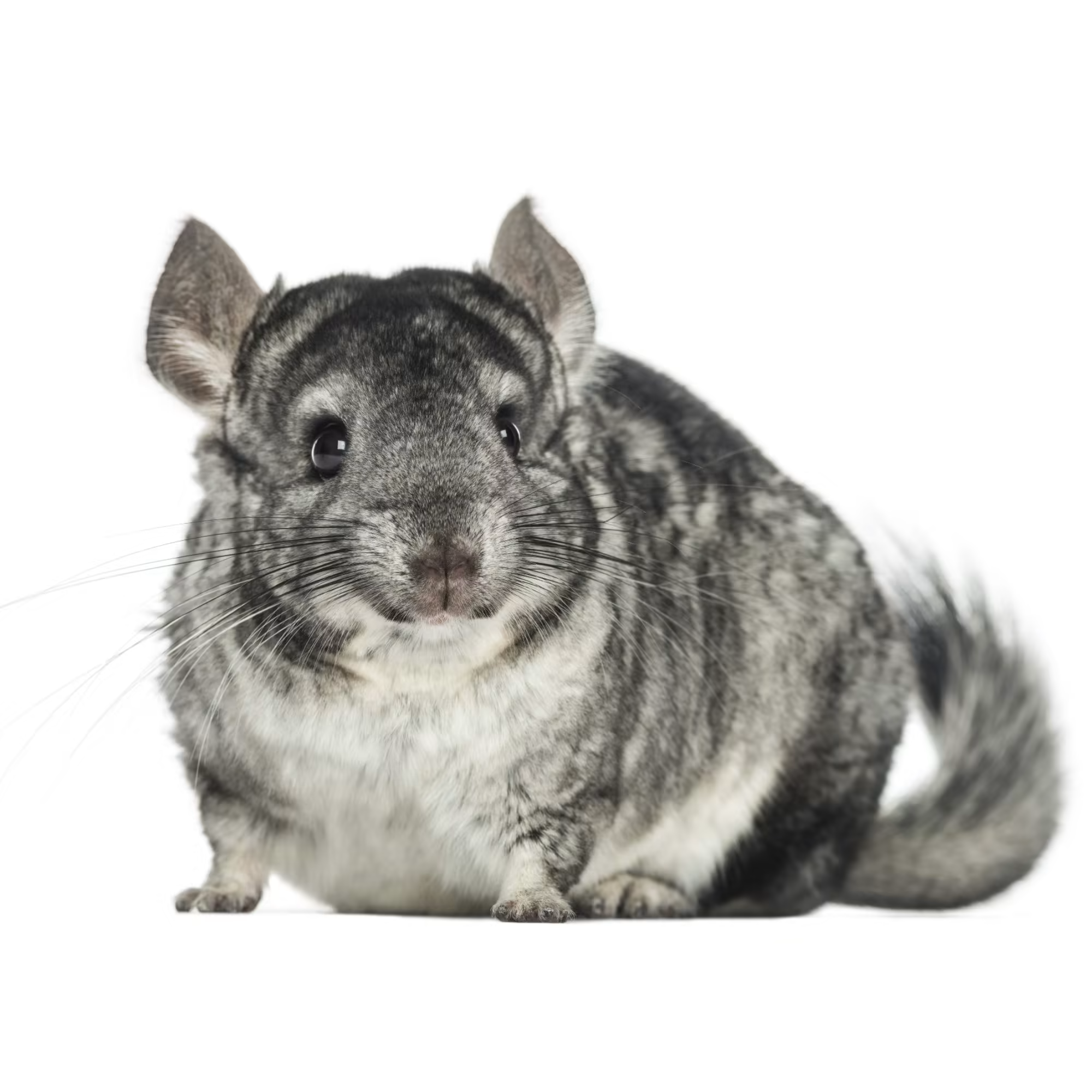
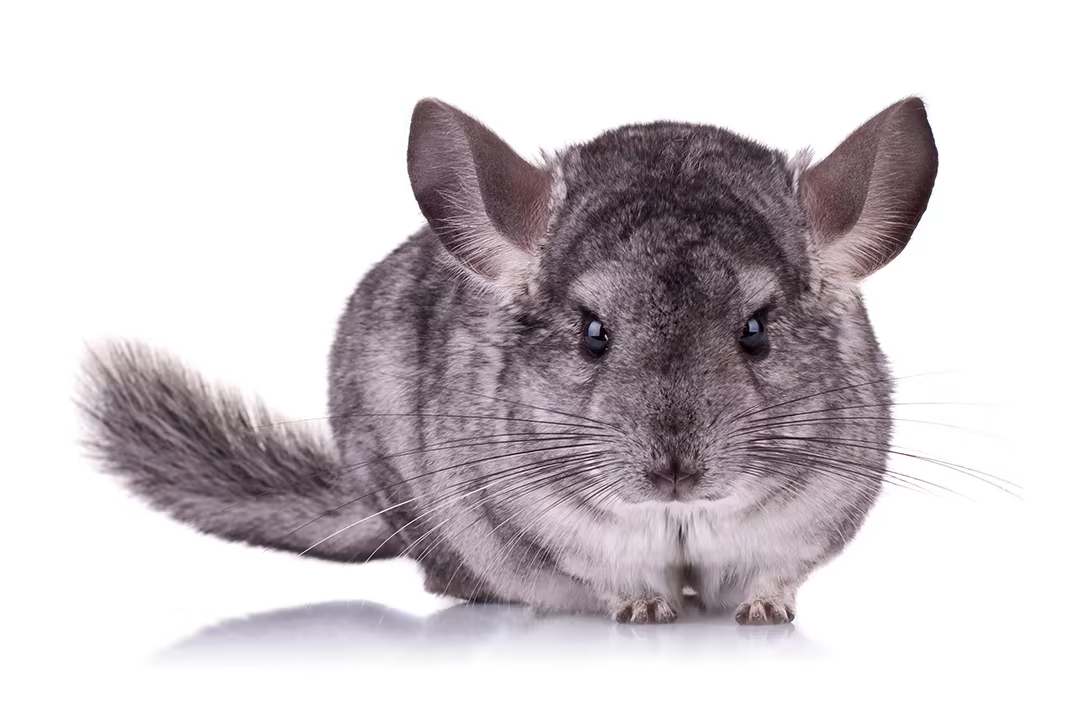
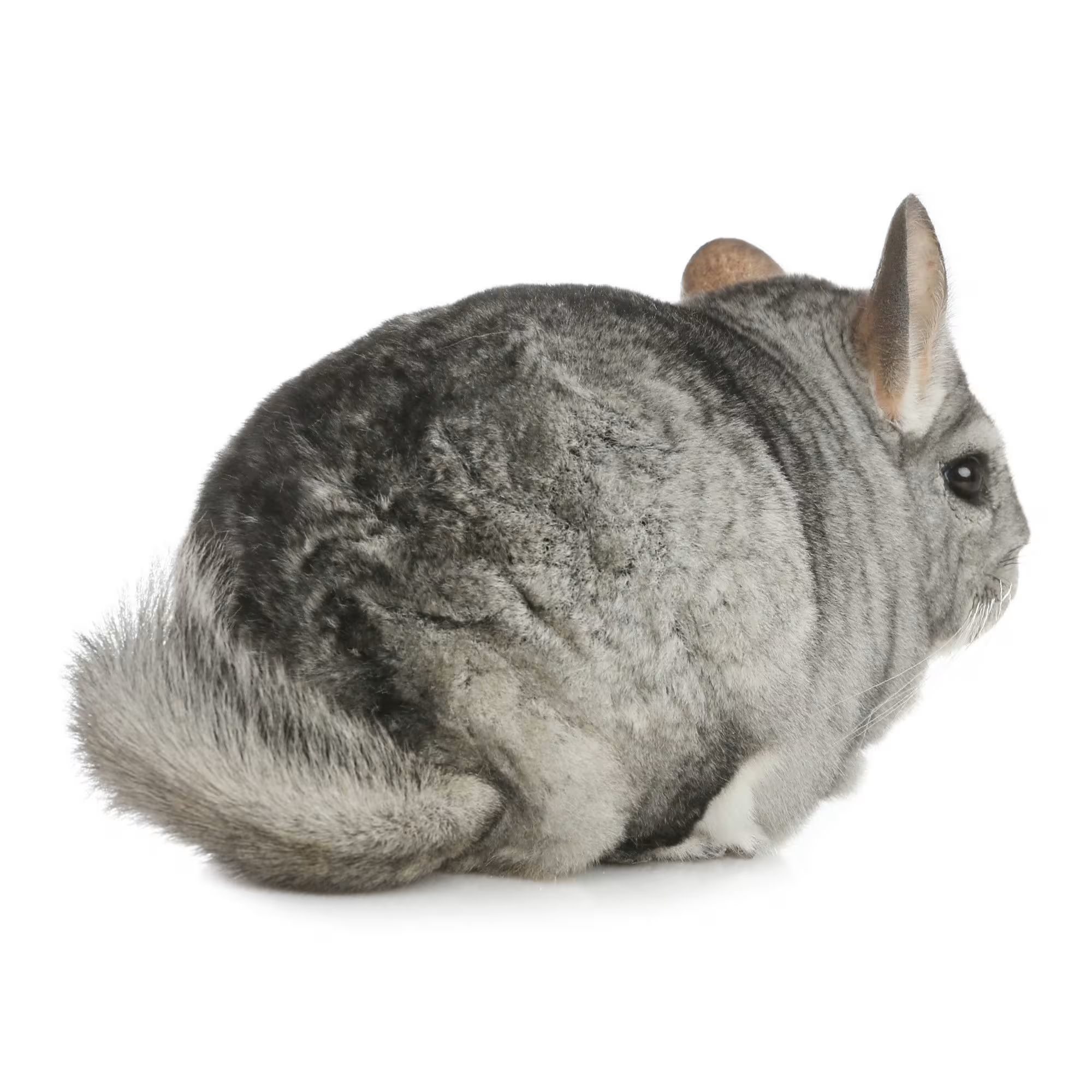







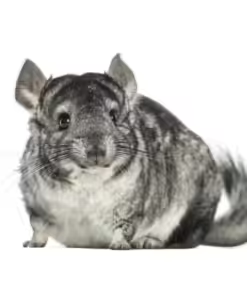
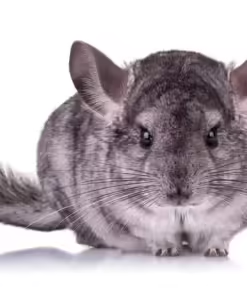
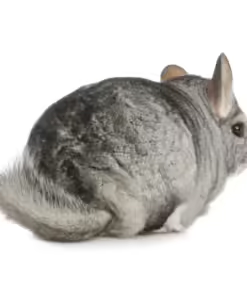












Reviews
There are no reviews yet.